In short:
- Early signs suggest monkeypox may be slowing in some US cities.
- Pakistan declared a national emergency over floods covering a third of the country.
- BP refinery in Indiana shut down, affecting fuel supply in the US Midwest.
Economy, energy, supply chain
The UK will raise its cap on energy bills to an average of £3,549 starting Oct 1. The cap does not apply in Northern Ireland. To reflect current market volatility, Ofgem will recalculate the cap every three months rather than every six months. The cap does not protect businesses, and small business owners are starting to face the brunt. A senior economist warned, “A catastrophe is coming this winter as soaring energy bills risk causing serious physical and financial damage to families across Britain.”
Macron warns of ‘sacrifices’ ahead after the ‘end of abundance.’ He says climate change and instability caused by Russia’s invasion of Ukraine signaled “the end of abundance.”
This winter might be harsh, but at least the likelihood of gas rationing is looking less likely.
The EU will convene an emergency meeting on Friday to discuss how new high gas prices are threatening to send Europe into recession:
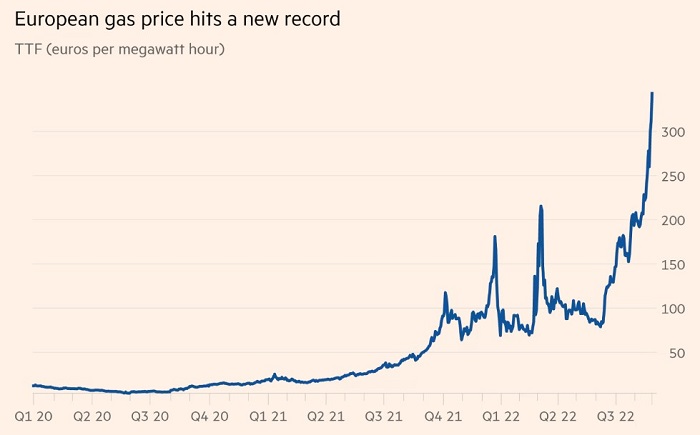
A BP refinery in Indiana shut down after a fire—the disruption is affecting fuel supply in the Midwest. Michigan declared a state of energy emergency. It is still unclear when the refinery will be back operational.
The two biggest data centers are stockpiling generator fuel in case of power blackouts.
Here’s an explainer of SNAP benefits and their eligibility.
Here are your odds of falling home prices in your local housing market. Click here or on the image below to go to the interactive map:
Opinion: Will El Salvador be the first country bankrupted by crypto?
Food security
Abbott is resuming production of Similac baby formula—should start to hit the shelves about six weeks from now.
Exports of grain from Ukrainian ports have surpassed one million metric tons. Forty-four ships had been sent to 15 nations, and 70 applications for ships to be loaded were received. Ukraine’s grain exports are down 52.6%. Ukraine could harvest at least 50 million tonnes of grain this year, compared with a record 86 million tonnes in 2021. Ukraine’s 2022 wheat harvest is 98% complete.
US corn harvest was the smallest since 2019. With dry weather and extreme heat hurting plants across the Midwest, it’s becoming less and less likely that the US will be able to fill those supply gaps left by the invasion of Ukraine.
The global situation, in a nutshell:
Underwhelming yield prospects in the US, China, Europe and India have revived tensions on international #grain markets, while #fertilizer plant shutdowns in Europe in response to high #gas costs are expected to continue adding upward pressure on food prices
— AMIS (@AMISoutlook) August 29, 2022
Here are American corn fields as seen from space:
For me, I really like corn…
It's CORN! 🌽 🎶
A big field of corn, @NASA can see it from space! pic.twitter.com/cLvgiW0PHr— NASA Earth (@NASAEarth) August 29, 2022
Opinion: Next year’s food crisis will be different from this year’s. This year’s food crisis is primarily due to logistics issues with shipping Ukrainian and Russian grains out of the countries. But next year, the food supply itself could be in trouble—especially in Ukraine, where the war has disrupted sowing.
Climate change, environment, extreme weather
Pakistan declared a national emergency over floods that killed more than 1,000 people:
Pakistan's devastating floods:
– 1350 people killed
– 50M people displaced
– 900K livestock deaths
– 1M houses washed away
– 40+ reservoirs breached
– 220+ bridges collapsed
– 90% cropped damaged
– $10B loss to economy
– 1/3 country underwaterSource – PDMA / NDMA pic.twitter.com/TG6jnL8zZQ
— South Asia Index (@SouthAsiaIndex) August 29, 2022
More videos:
Map of the floods:
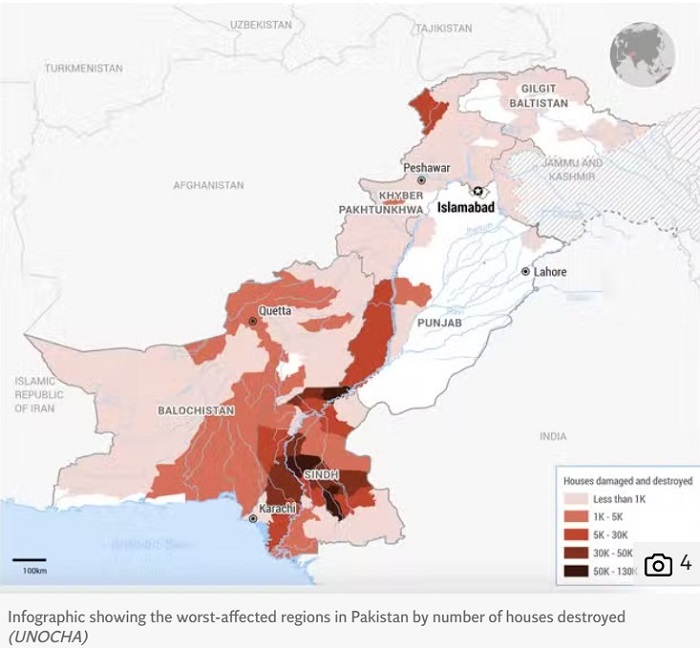
Watch how volunteers used a bed frame to rescue people:
Floods in nearby Afghanistan killed more than 180 people and destroyed over 3,000 houses. The Taliban are pleading for humanitarian help.
We don’t have a guide on how to prep for and survive flash floods (yet), but I’ve compiled some tips and resources in a recent roundup.
Study: Larger organic farms are more likely to use fewer sustainable farming practices.
Cool animation about heatwaves, the heartbeat, and breath of the Earth /Global surface two-meter temperature record from Jan 1 to Aug 22:
If you want a long read, here’s a report on the drought in Europe in August 2022.
Beaver dams in Devon, England, create wetland areas amid the drought. The beavers were released as part of a five-year study that ended in 2020, and there are now up to two ft of water:
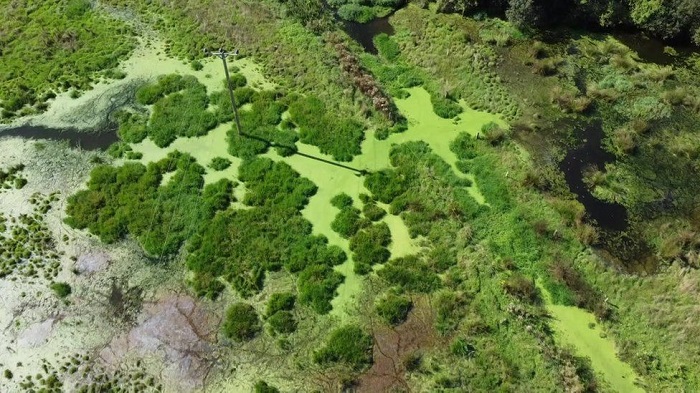
Health
The CDC is cautiously optimistic that monkeypox in the US is slowing down. Even though cases are still rising across the country, new infections in big cities like New York, Chicago, and San Francisco seem to be slowing. Vaccinations and more awareness/change in behavior seem to be working. Data will be more precise in the following weeks.
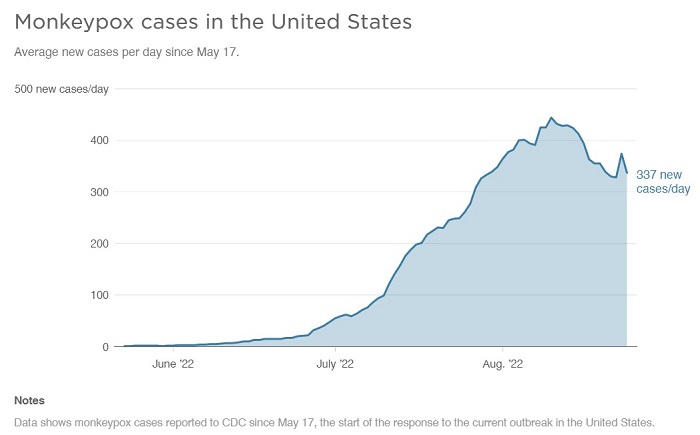
Omicron-specific boosters: Here’s more about them and how they work, and here are suggestions on how to plan a fall booster shot.
FDA extended the shelf life of some at-home Covid tests. Go here to check if your tests have a new expiration date.
WHO approves Africa’s first locally-made malaria drug for pregnant women and children.
The rest
I had shared the following two news items on our Discord, but they seem too important not to mention again:
A bipartisan group of lawmakers is forming a congressional caucus focused on disaster preparedness and recovery.
Senate passes bipartisan bill to protect pets and other animals during and after natural disasters.
A major Florida insurer is exiting the market, leaving thousands of homeowners uninsured.
Pro- and anti-abortion groups clash at California Planned Parenthood clinic.
Watch how this boy’s prompt reaction saved his mother while she was having a seizure in the pool:

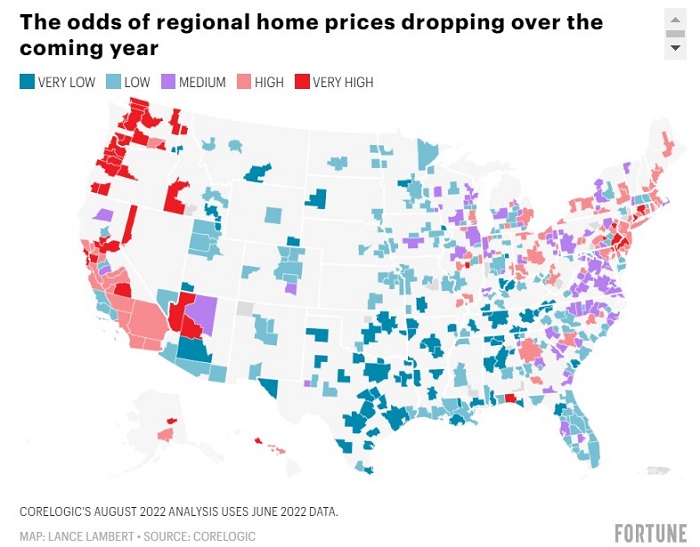
You are reporting the comment """ by on